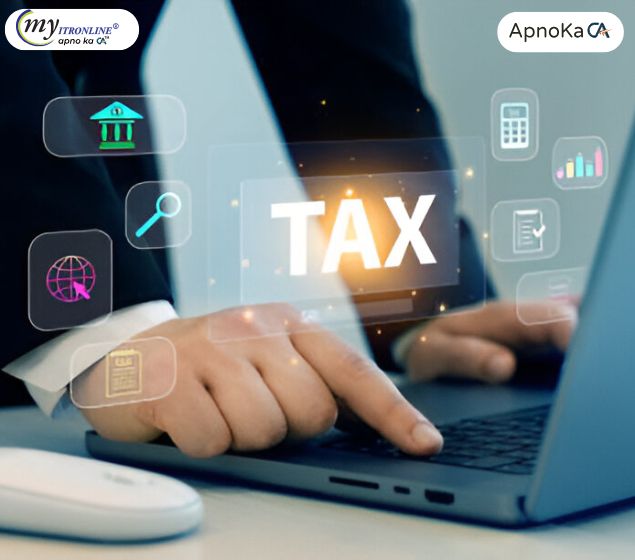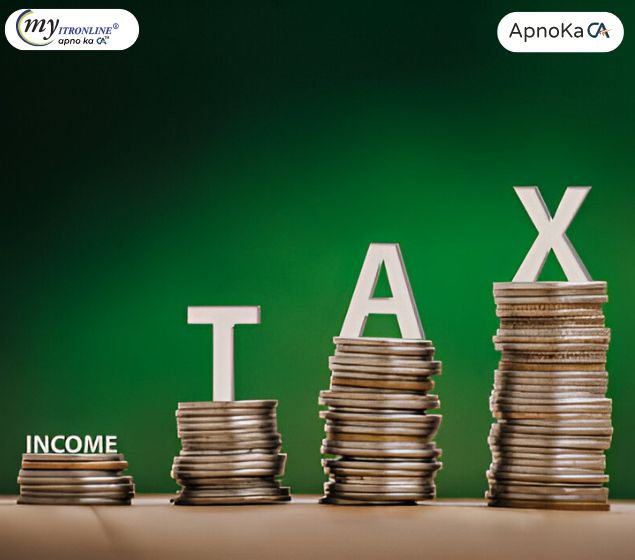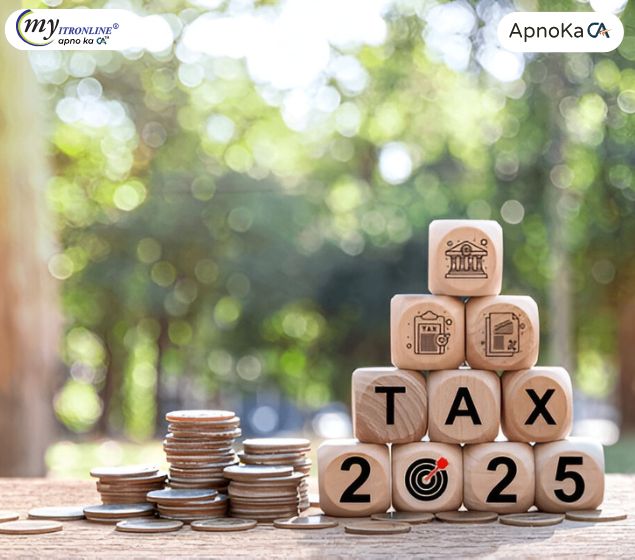# taxreturn
12 posts in `taxreturn` tag

Updated Tax Returns (ITRU): Made a Mistake? Now You Have 4 Years!
This blog post explains the Updated Tax Return (ITRU), a crucial provision under Section 139(8A) of the Income Tax Act that allows taxpayers to correct errors or declare omitted income in previously filed ITRs. It highlights the significant extension of the filing deadline from two to four years from the end of the relevant assessment year, providing more flexibility. The article details the penalties and interest associated with filing an ITRU, outlines who is eligible to file (those declaring additional income) and who isn't (those seeking refunds or reduced liability), and provides a step-by-step guide on the filing process. The aim is to empower taxpayers to proactively ensure compliance and avoid harsher penalties, with a strong call to action for expert assistance from MyITRonline.

Important Announcement for Taxpayers: CBDT Extends Deadline for Processing AY 2023-24 Income Tax Returns
The Central Board of Direct Taxes (CBDT) has issued an order extending the processing deadline for electronically filed Income Tax Returns (ITR) for Assessment Year (AY) 2023-24 to November 30, 2025. This relaxation applies to returns where the intimation under Section 143(1) had previously lapsed. The blog post explains who benefits, important exceptions (like scrutiny cases and assessee-attributable delays), and reiterates the necessity of PAN-Aadhaar linking for refund eligibility. It highlights this as a significant relief for taxpayers.

AY 2025-26: Top 28+ Income Tax Return Errors and How to Avoid Them
Filing your Income Tax Return (ITR) for AY 2025-26? Avoid the 28+ most common mistakes that can lead to notices, penalties, or delayed refunds. This comprehensive guide covers identity, income reporting, deduction, procedural, and verification errors, plus new regime selection tips. Stay updated, file accurately, and ensure a smooth tax season!

Understanding ITR: Your Definitive Guide to Income Tax Returns in India (2025)
This guide explains Income Tax Returns (ITR) in India for AY 2025-26. It defines ITR, outlines the significant benefits of filing (like refunds, loan proof), details who must mandatorily file based on income thresholds (e.g., GTI > ₹3 Lakh in new regime) or specific high-value transactions (deposits > ₹1 Cr, foreign travel > ₹2 Lakh etc.), and clarifies exemptions, including the specific conditions for senior citizens over 75 under Section 194P.

our Guide to the Income Tax Intimation Password (Section 143(1))
This guide explains the purpose of an Income Tax Intimation notice received under Section 143(1) after filing your ITR. It details why the document is password-protected and provides the precise password format: your PAN number in lowercase followed immediately by your Date of Birth in DDMMYYYY format. Learn the step-by-step process to open the encrypted PDF, understand the calculation comparison within, and know what actions to take based on whether it shows a refund, demand, or no change.
.jpg)
Everything You Need to Know About Filing Updated ITR-U Returns
In order to rectify prior errors, record extra income, or file missed reports, taxpayers can now file an Updated Income Tax Return (ITR-U) for the preceding four years. This tutorial provides detailed instructions on how to submit an ITR-U, as well as information on who is eligible, deadlines, and penalties.
.jpg)
ITR Amendments Made Easy: New January 15, 2025 Deadline
To provide aid to taxpayers, the Income Tax Department has extended the deadline for filing the ITR until January 15, 2025. Those revising special rate incomes or fixing Section 87A rebate issues will especially benefit from this prolongation. Find out how to take advantage of this chance, avoid penalties, and file amended taxes.
.jpg)
No More Errors: How to Use the New Online Tool for ITR Rectifications
Taxpayers can now easily fix errors in their Income Tax Returns (ITRs) thanks to the Income Tax Department of India's sophisticated online rectification facility, which was added to its e-filing system. This technology enhances transparency while offering error detection, smooth correction, and quicker refund processing. Discover its primary attributes, advantages, and how-tos for keeping correct tax records and remaining in compliance.
.jpg)
The Income Tax Act's Section 168A: Guaranteeing Relief in Unprecedented Times
Section 168A of the Income Tax Act provides relief to taxpayers during emergencies like pandemics or natural disasters by allowing the government to extend tax-related deadlines. This section helps avoid penalties and reduces the compliance burden when normal operations are disrupted. It was widely used during the COVID-19 pandemic to extend deadlines for filing returns and completing assessments. While it offers temporary relief, the extensions are time-bound and rely on government notifications. This provision ensures flexibility for taxpayers during challenging times.

Recognizing and Addressing Income Tax Department Unpaid TDS Notices
This blog article offers a thorough explanation of how to reply to TDS notices that are outstanding and are delivered by India's income tax department. It goes over the justifications for these notifications, how to verify them, and a methodical process for properly replying to them. The article also describes the various letters that the income tax agency may send you as well as how to stay out of trouble with the law.

Section 234A - Interest on Late Filing of Income Tax Returns
The Income Tax Act's Section 234A, which charges interest to taxpayers for late filing of their income tax returns, is explained in this blog entry. It offers a thorough description of the interest calculation process, the repercussions of nonpayment, and an example of how to compute interest using Python code. The purpose of this post is to inform taxpayers about the significance of timely return filing in order to prevent having to pay interest under Section 234A.
.jpg)
Missing or Delayed Income Tax Refund
Are you waiting for your income tax refund and discovering that it has been lost or is delayed? You're not by yourself. This article examines typical causes of delays, including as audits and mistakes on tax returns, and offers professional advice on how to have the problem resolved as soon as possible. Additionally, you'll discover how to avoid delays in the future and obtain your return as soon as possible.
